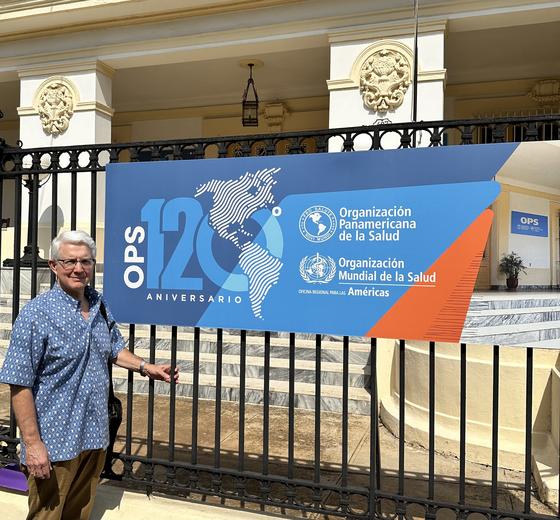In This Story

As a senior leader and Board Member of the Association of Schools and Programs of Public Health (ASPPH), Senior Associate Dean Robert Weiler joined a delegation of 14 public health deans, directors, and faculty in Cuba. The delegation went to learn about Cuba's public health system and to explore bilateral collaborations between schools and programs of public health in the United States and the National School of Public Health in Havana.
“It was a great opportunity to learn in an immersive setting and understand what’s happening in Cuba and to also learn about the major health challenges that they are facing,” said Weiler. “In Cuba, health care is considered a human right. They have a national health system which is free for all citizens and infused throughout public health services which is a very different approach than in the U.S.”
The delegation learned about Cuba’s health care system, how the school of public health trains practitioners and researchers, and learned about their medical school curriculum, especially for primary care physicians.
“Some of the most common health challenges in Cuba are similar to those we face here in Virginia. They are concerned about climate change and health, the aging population, issues with maternal and child health, and chronic diseases specifically diabetes and asthma, problems which are common in the U.S.,” said Weiler. “The trip has expanded my thinking about how social determinants impact health outcomes and well-being. The nuances in which they affect population health have a different context in Cuba than in the U.S.”
They met with leadership from the Cuban National School of Public Health, visited a primary care health center (called a polyclinic), neighborhood medical offices where the focus is on prevention, the Latin American School of Medicine, the Cuban headquarters for the Pan American Health Organization, and discussed science in the public interest at the Center of Molecular Immunology.
Future collaborations may include research initiatives, faculty and student exchanges, workshops and webinars with virtual guest lectures, and workforce and infrastructure development opportunities.
The delegation and ASPPH are preparing a delegation summary which will include more details about opportunities for academic collaborations.
